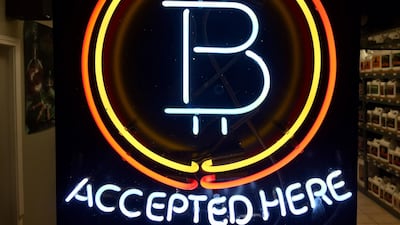Efforts at removing physical cash from circulation are not new.
The credit card made its appearance in our lives in the 1950s and the 1990s saw a proliferation of electronic payments with rise of the internet. The emergence of crypotocurrency blockchain technology, which allows two parties to send information and conduct transactions in a secure manner, is set to help more financial transactions become cashless.
The appearance of Bitcoin and other largely unregulated digital currencies has prompted a number of central banks, especially in Scandanavia to create their own. The question of cryptocurrencies is becoming more urgent for countries like Sweden where cash is fast disappearing and many stores no longer accept it.
Many bank branches no longer take deposits or dispense money, either. The Swedish central lender Riksbank is has project underway called the eKrona to see whether to supply digital central bank money to the public.
Governments have also recognised that turning fiat currencies into cryptocurrencies is a way to prevent the proliferation of digital currencies that are outside their control.
_______________
Read more:
World Government Summit: Where does the future lie for Bitcoin?
South Korea eases back on crypto regulation
_______________
Sweden has been among the most advanced when it comes to creating a cashless society. Last year, the amount of cash in circulation dropped to the lowest level since 1990 and is more than 40 per cent below its 2007 peak, according to Bloomberg.
The declines in 2016 and 2017 were the biggest on record. An annual survey by Insight Intelligence released last month found only 25 per cent of Swedes last year paid in cash at least once a week, down from 63 per cent just four years ago. A full 36 per cent never use cash, or just pay with it once or twice a year.
In response, the central bank is considering whether there’s a need for an official form of digital currency, an e- krona.
A final proposal isn’t expected until late next year, but the idea is that the e-krona would work as a complement to cash, not replace it completely. So successful has the move to digital been in Sweden that Riksbank Governor Stefan Ingves has said that Sweden should consider forcing banks to provide cash to customers.

